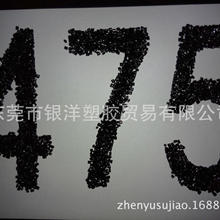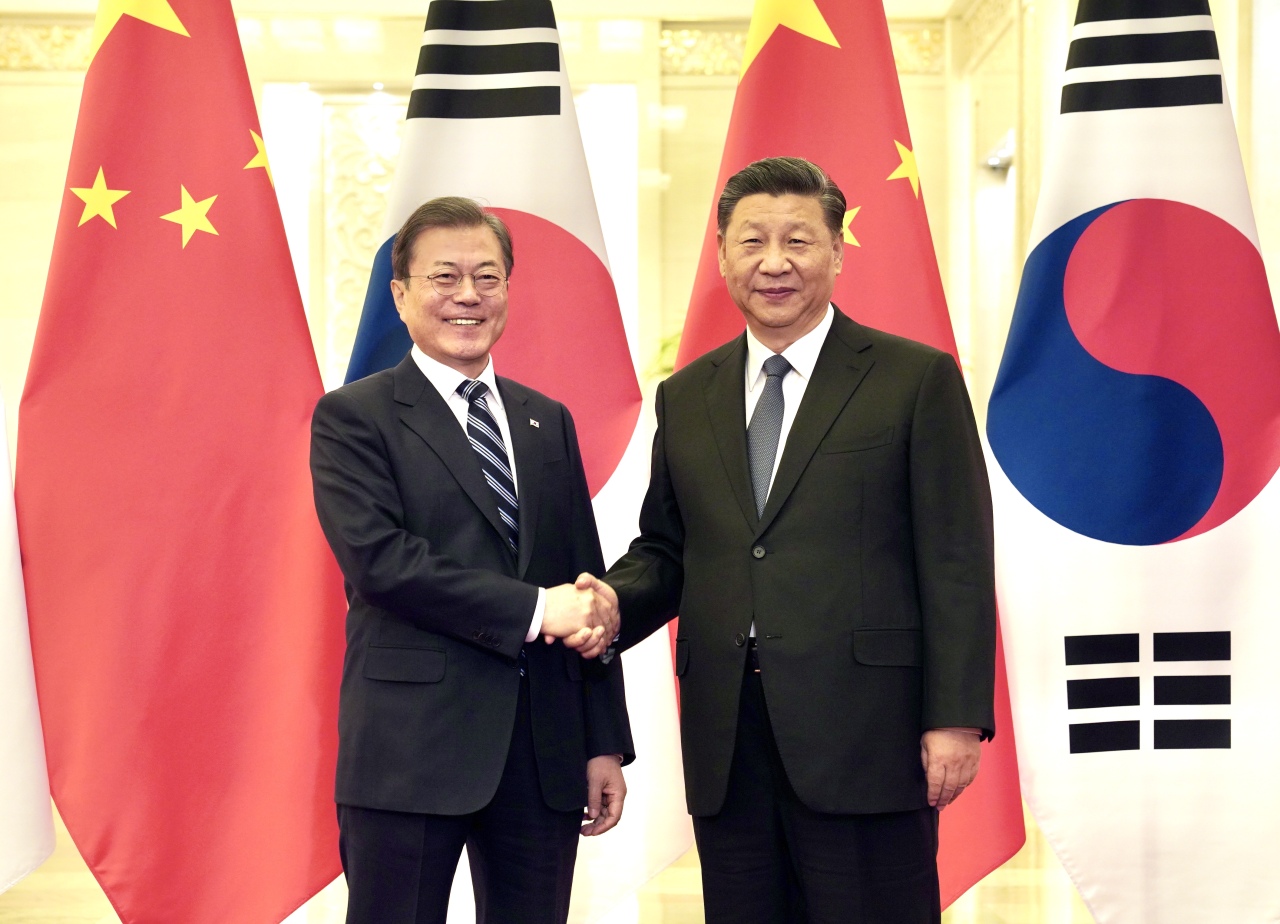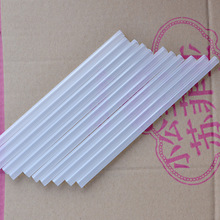Pence and Xi at APEC: China hasn't been able to take advantage of Trumpian dysfunction.
Popular in News & Politics
- Elena Kagan Sees Exactly What Samuel Alito Is Doing
- The Real Story of the Glamorous Prosecutor Who Took on Police Violence—and Then Seemed to Implode
- Clarence Thomas Makes a Full-Throated Case for Racial Gerrymandering
- Jamie Raskin Explains What America Could Do to Fix the Supreme Court
Maybe he just didn’t want to put on the shirt?
President Donald Trump was a no-show at this year’s Asia-Pacific Economic Cooperation in Papua New Guinea, sending Vice President Mike Pence in his place to don a natty red silk top for the local-dress photo that’s become an annual summit tradition.
While it’s hard to read Trump’s non-attendance as anything but a snub, APEC leaders might have hoped that they could at least avoid some of the drama the president tends to bring to international gatherings. But this year’s APEC was nothing if not contentious. For the first time in its nearly 30-year history, the summit ended Sunday without a joint communiqué, a outcome that highlights the deep divisions on display at a meeting dominated by growing U.S.-China tensions As the host, Papua New Guinea Prime Minister Peter O’Neill, put it when asked about the impasse, “You know the two big giants in the room, so what can I say?”
The U.S. had reportedly insisted that the communiqué contain language calling for reform of the World Trade Organization and condemning “unfair trade practices.” China, reportedly, refused to sign on.
Pence said that he and Xi had had a “candid conversation,” but the two delegations mostly kept their distance. Neither leader attended the other’s address to the conference, though both speeches were aimed at the other leader.
Pence used his remarks to warn countries against taking part in China’s massive “Belt and Road” global infrastructure initiative, which he called “debt diplomacy.” He urged them instead to seek U.S. development assistance and investment, saying, “We don’t drown our partners in a sea of debt. We don’t coerce or compromise your independence.” (While President Trump is a longtime critic of foreign aid, his administration has quietly expanded some development assistance programs with an eye toward countering Chinese influence in the developing world.)
Advertisement Advertisement Advertisement AdvertisementXi, meanwhile, who will sit down with Trump for a highly-anticipated meeting in Buenos Aires at the end of this month, devoted his speech to a defense of economic globalization and free trade, saying, in a clear reference to Trump’s “America First” policies, “Resorting to old practices such as protectionism and unilateralism will not resolve problems. On the contrary, they can only add uncertainties to the global economy. Only openness and cooperation can bring more opportunities and create more space for development.”
This is nothing new from Xi. The general secretary of the Communist Party of China has been trying to position himself internationally as the leading defender of global capitalism since Trump was elected. In Trump’s obvious disinterest in playing the role of global leader, Xi clearly sees an opportunity to boost China’s stature and soft power. (This dynamic will be on display again next month at global climate talks in Poland.)
AdvertisementBut it’s far from clear that governments and citizens around the world are buying what Xi is selling.
For all the talk of a “peaceful rise” and “win-win” arrangements coming out of Beijing, Chinese influence remains extremely controversial around the world. In recent Asian elections in Malaysia and the Maldives, voters delivered shock results that ousted entrenched governments seen as too beholden to Chinese interests. Two years after the Philippines’ President Rodrigo Duterte announced his intention to “separate” from its longtime ally, the United States, and to throw in his lot with Beijing, the country has little in new investment or trade to show for it. Pro-China leaders recently launched a near-coup to maintain power in Sri Lanka, plunging the country into a constitutional crisis. China has been wooing Pacific island countries, including APEC hosts Papua New Guinea, with splashy development projects, but there are growing questions across the region about whether these investments are worth the political compromises, corruption concerns, and environmental impacts that have often accompanied them.
It’s not just Asia where this dynamic is playing out. Anti-Chinese rhetoric is now a regular feature of election campaigns across Africa. And in South America, right-wing President-Elect Jair Bolsonaro accused China of “buying Brazil” during his campaign, though he’s softened his rhetoric a bit since his election. And many EU leaders share Trump’s frustration with China’s trade policies, if not the tone he uses to voice them.
On top of that, the growing international condemnation of China’s treatment of its Muslim Uighur minority—a brutal campaign of religious repression that’s been referred to as “cultural genocide”—have only undermined Xi’s efforts to present a friendlier Chinese face to the world.
Trump’s disinterest in global cooperation and overall international unpopularity ought to have opened up an opportunity for China as a rising economic and political power.
Judging from this past week’s events in Port Moresby, it appears Xi is in not in a position to take advantage of it.
相关文章
The Best AMD Ryzen Gaming Laptops (So Far)
As a culmination to our testing of Ryzen Mobile 4000-H processors and the various laptops they are f2024-09-22 小学数学西师版教材第五册开始学习分数,在初步认识分数后,就要学习简单的分数加减法,即同分母分数加减法。在上课时,我让每个孩子将自己准备的纸条分出2/7,再分出这个纸条的3/7,然后提问一共分出几分之几2024-09-22
小学数学西师版教材第五册开始学习分数,在初步认识分数后,就要学习简单的分数加减法,即同分母分数加减法。在上课时,我让每个孩子将自己准备的纸条分出2/7,再分出这个纸条的3/7,然后提问一共分出几分之几2024-09-22
Moon, Xi stress importance of maintaining Pyongyang
CHENGDU/ BEIJING -- South Korean President Moon Jae-in and Chinese President Xi Jinping sent a unifi2024-09-22 雅安日报讯每年9月是国家规定的“质量月”。9月,四川雅化实业集团股份有限公司雅安生产厂(以下简称雅化集团雅安生产厂)结合当前形势和行业特点,紧紧围绕“提升质量调结构,增长效益促转变”的“质量月”活动主2024-09-22
雅安日报讯每年9月是国家规定的“质量月”。9月,四川雅化实业集团股份有限公司雅安生产厂(以下简称雅化集团雅安生产厂)结合当前形势和行业特点,紧紧围绕“提升质量调结构,增长效益促转变”的“质量月”活动主2024-09-22 碘是人体必需的微量元素。人体缺碘会造成不同程度的损害,导致发生碘缺乏病,特别是对孕妇、婴幼儿的危害更为突出。那么,我们该如何科学补碘呢?近日,记者采访了雨城区疾控中心相关专家。问:什么是碘缺乏病?答:2024-09-22
碘是人体必需的微量元素。人体缺碘会造成不同程度的损害,导致发生碘缺乏病,特别是对孕妇、婴幼儿的危害更为突出。那么,我们该如何科学补碘呢?近日,记者采访了雨城区疾控中心相关专家。问:什么是碘缺乏病?答:2024-09-22
FIFA stands by evaluation of Colombia 2023 women's World Cup bid
BERN:FIFA is standing by its technical evaluation of Colombia's bid to host the 2023 women's World C2024-09-22

最新评论